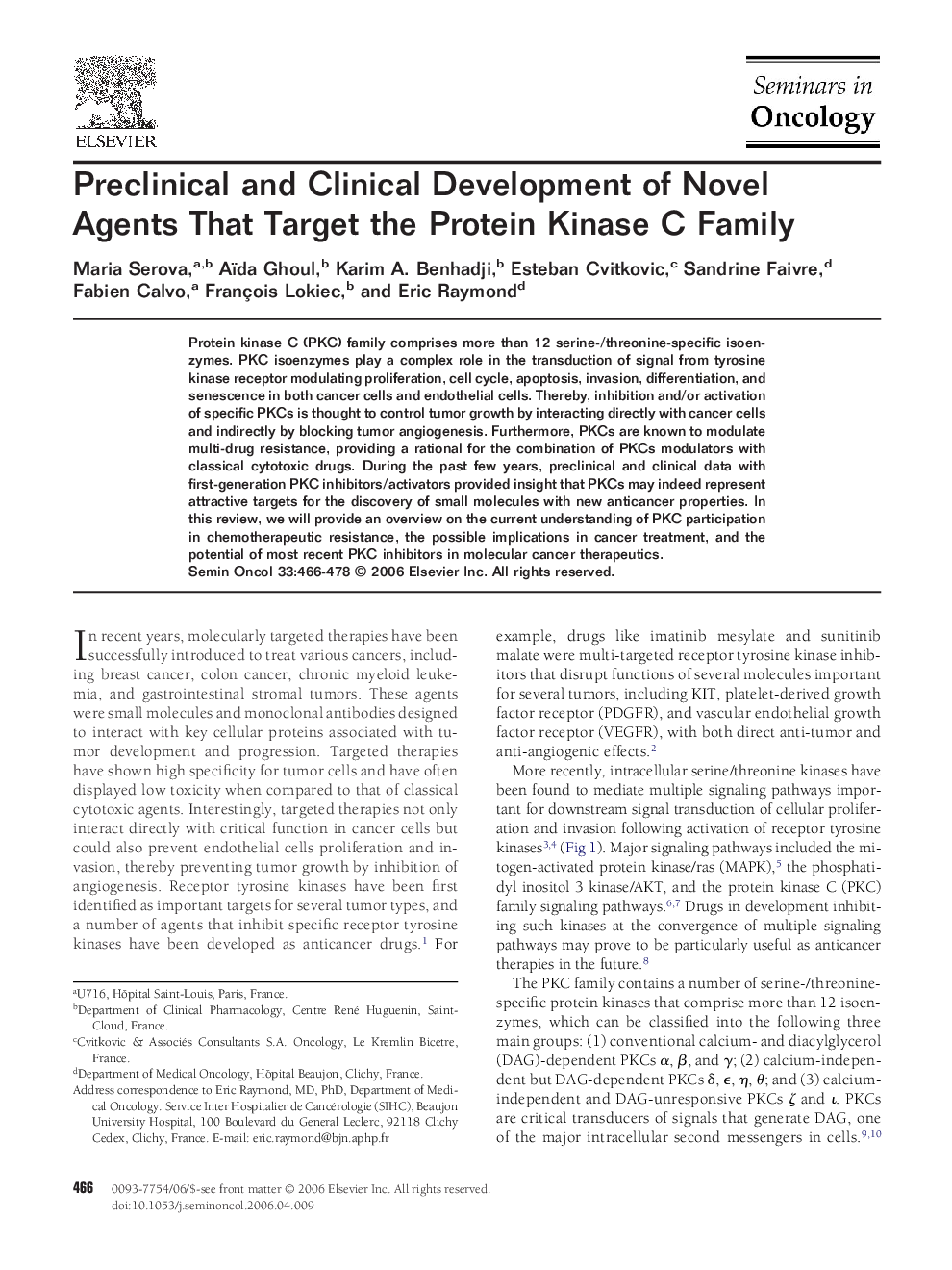| Article ID | Journal | Published Year | Pages | File Type |
|---|---|---|---|---|
| 2163135 | Seminars in Oncology | 2006 | 13 Pages |
Abstract
Protein kinase C (PKC) family comprises more than 12 serine-/threonine-specific isoenzymes. PKC isoenzymes play a complex role in the transduction of signal from tyrosine kinase receptor modulating proliferation, cell cycle, apoptosis, invasion, differentiation, and senescence in both cancer cells and endothelial cells. Thereby, inhibition and/or activation of specific PKCs is thought to control tumor growth by interacting directly with cancer cells and indirectly by blocking tumor angiogenesis. Furthermore, PKCs are known to modulate multi-drug resistance, providing a rational for the combination of PKCs modulators with classical cytotoxic drugs. During the past few years, preclinical and clinical data with first-generation PKC inhibitors/activators provided insight that PKCs may indeed represent attractive targets for the discovery of small molecules with new anticancer properties. In this review, we will provide an overview on the current understanding of PKC participation in chemotherapeutic resistance, the possible implications in cancer treatment, and the potential of most recent PKC inhibitors in molecular cancer therapeutics.
Related Topics
Life Sciences
Biochemistry, Genetics and Molecular Biology
Cancer Research
Authors
Maria Serova, Aïda Ghoul, Karim A. Benhadji, Esteban Cvitkovic, Sandrine Faivre, Fabien Calvo, François Lokiec, Eric Raymond,
